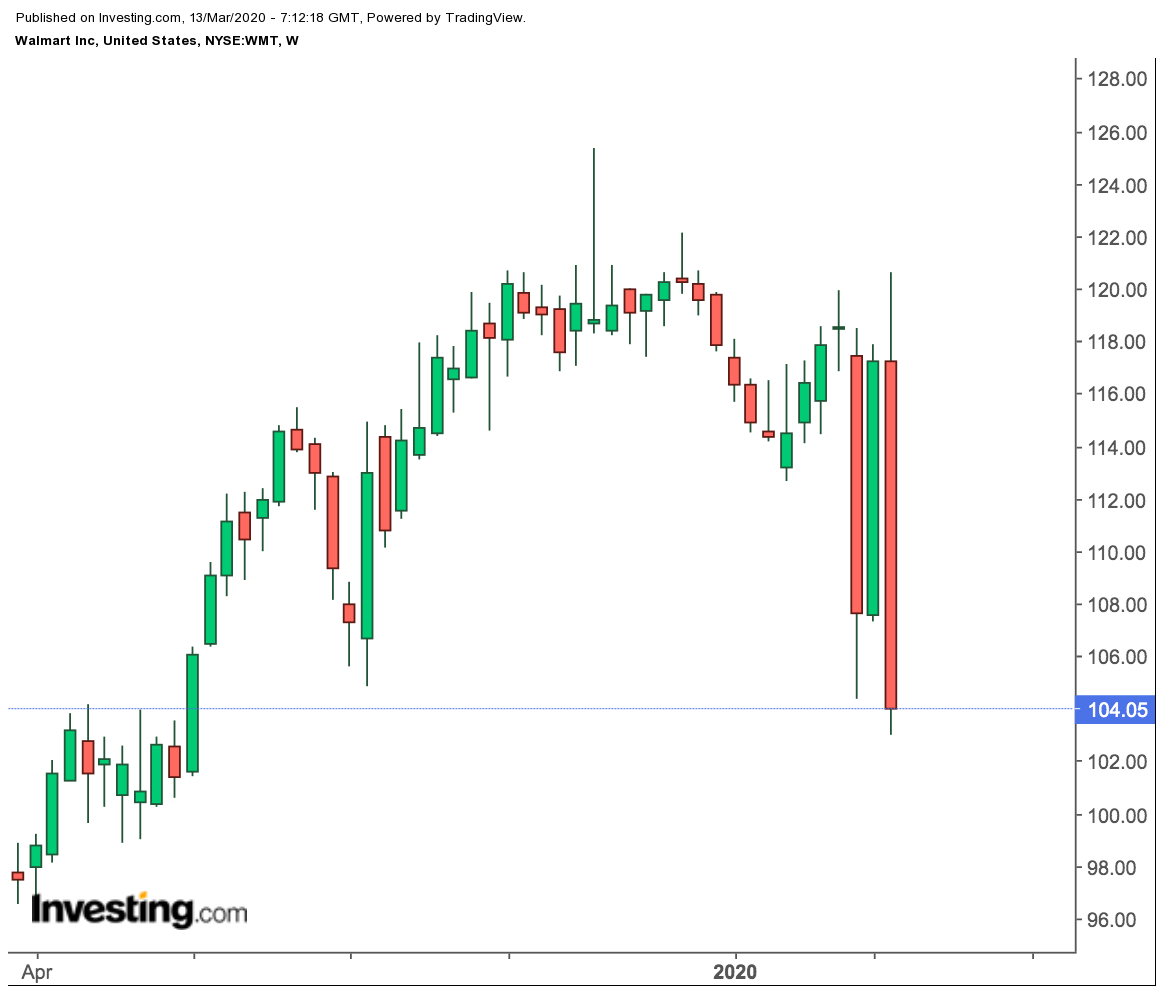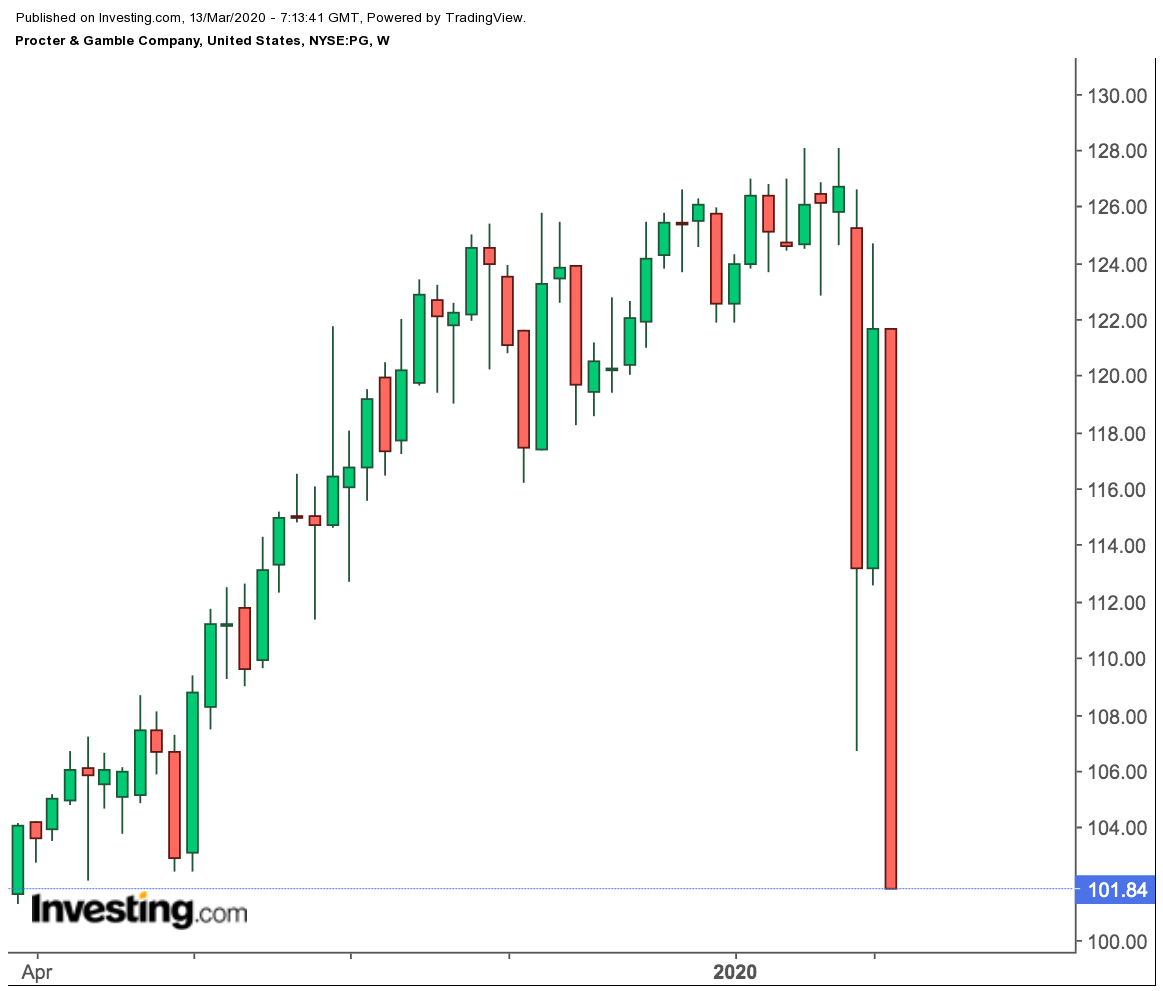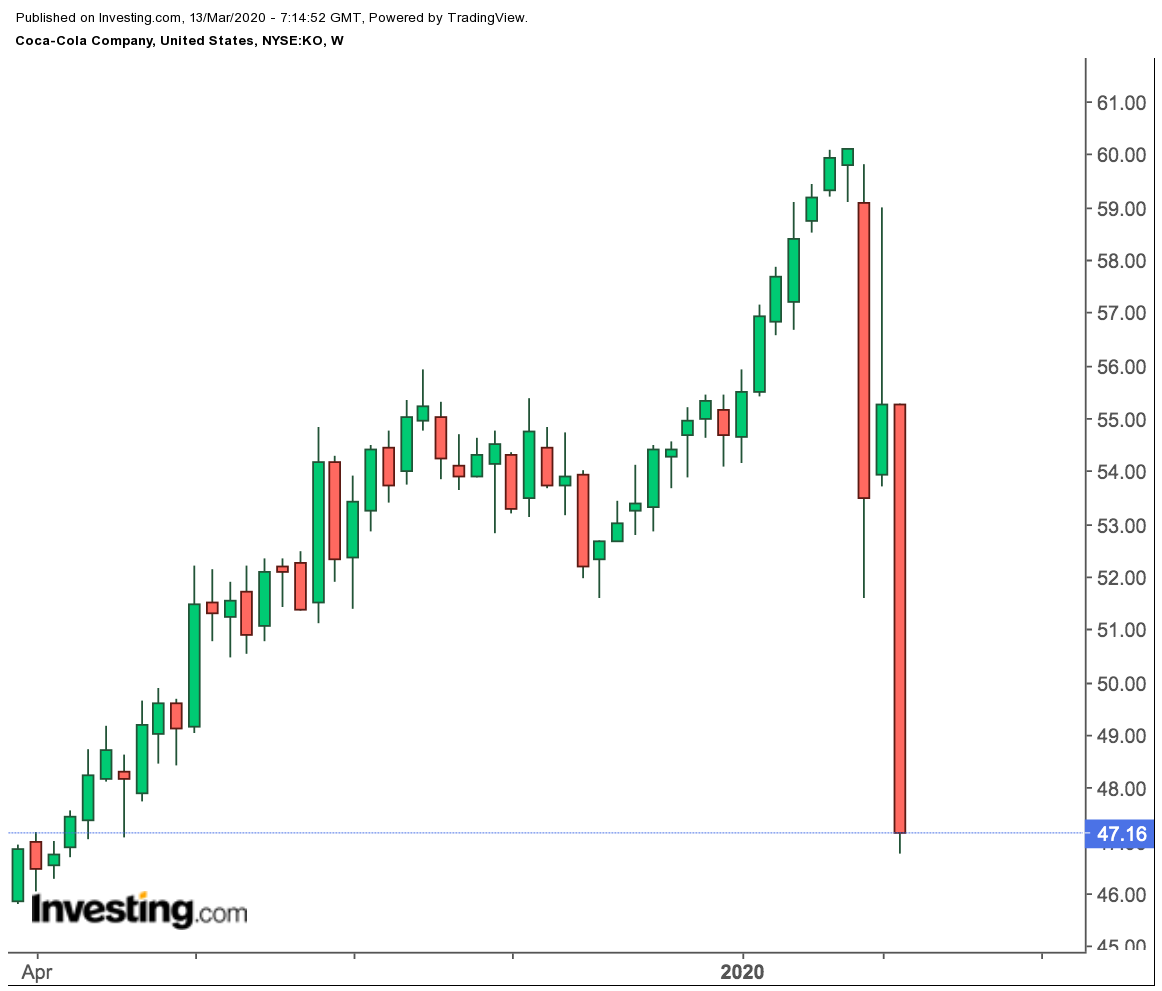As the coronavirus outbreak wreaks havoc on markets and economies, the chances that the U.S. will slip into recession are growing fast.
Stocks have suffered a devastating blow over the past two weeks, following the spread of the disease and an oil price war which is threatening the nation’s largest energy companies and the banks that provide their financing. The three major averages are now firmly in a bear market, after plunging more than 20% from their peak.
Many analysts are now calling for a U-shaped recovery rather than a V-shaped rebound which has been the case in many downturns during the past decade. It’s hard to completely emerge unscathed if you’re an equity investors in the type of major downturn that's taking place right now, but you can minimize your risk by diversifying your portfolio and adding low-risk dividend-paying stocks to your portfolio.
“High Quality, Large Cap, and Low Risk factors tend to outperform during the ‘Downturn’ phase of the cycle,” Bank of America equity and quant strategist Savita Subramanian said in a note to clients. With this in mind, we have selected the following three stocks that should continue to produce income in a prolonged market downturn or even an economic recession.
1. Walmart
One way to position your portfolio to better perform during times of market distress is to include companies that produce or sell products and services that are crucial to our daily lives. Giant retail companies fit this profile well. The logic: in times of economic recession, you may cut your fine dining budget, but there's little chance you'll scrimp on basic grocery shopping.
This built-in protection makes the world’s largest brick-and-mortar grocer, Walmart Inc (NYSE:WMT), a great recession-proof stock. With a beta of just 0.43 (riskier stocks have a higher beta, closer to or above 1), Walmart is one of the safest big-cap stocks.
After falling 10% against the 26% plunge in the S&P 500 in the past month, Walmart is currently trading at $104.05. Fundamentally, this is not a bad time to buy Walmart as the company is succeeding in its plan to attract more online customers amid the growing threat of competition from Amazon (NASDAQ:AMZN).
The growing success of its hybrid retail model—in which its massive store network and online presence come together to create a superior shopping experience for customers— is evident from the company’s recent earnings reports.
Walmart’s rock-solid dividend is an added benefit. It makes this stock a good choice to own through the market's thick and thin activity. The company has an impressive track record when it comes to returning cash to its investors.
Early this year, Walmart announced a 4% hike in its dividend payout to $2.16 per share per annum, for a 1.89% yield. With this increase, Walmart has raised its payout every year for the past 46 years. A regularly increasing payout provides a good hedge and protects the value of your investment from erosion by inflationary pressures.
2. Procter & Gamble
The consumer staples sector is another area of the market where investors can take refuge when the risk of a recession rises.
Procter & Gamble Company (NYSE:PG), the multinational consumer staple manufacturer, produces essential products that consumers continue to need, and buy, no matter the economic environment around them. As a result, it's one of the first stocks we recommend when volatility drives markets and investors to seek slow but steady capital growth with regular dividend payments.
After surging more than 80% since the middle of 2018, PG stock has also taken a hit in the current market rout, falling 17% in the past month. It closed yesterday at $101.84. The world’s biggest consumer product company is one of the largest dividend payers in the sector.
The maker of Dawn dish soap and Pampers has hiked its dividend for 63 consecutive years. Over the past 128 years it has never stopped paying dividends, making money even during recessions, wars and droughts.
With a current dividend yield of 2.67%, P&G stock pays about $0.74 a share each quarter. This remarkable history of payouts makes this consumer stock a dependable player for those looking to defend their portfolios from economic shocks.
Another benefit of owning P&G is that in times of extreme volatility, when highly cyclical growth stocks suffer the most, slow-moving consumer staples stocks outperform. As volatility spiked during the past month, P&G stock has outperformed the benchmark index.
3. Coca-Cola
Coca-Cola Company (NYSE:KO) is simply one of the best defensive stocks to bet on ahead of the next recession. The world’s largest beverage company owns or licenses more than 500 soft drinks including sodas, bottled water, juices and iced teas, sells its products in more than 200 countries and has 21 individual brands that generate $1 billion or more in annual sales such as Sprite, Minute Maid and Fuze Tea. It's also the market leader across a number of its core product categories.
The company has been able to increase its dividend for 56 years in a row. That's more than enough proof of the strength of the brand as well as the company’s ability to perform during recessions, market downturns and changing consumer preferences.
Earlier this year, Coca-Cola boosted its annual dividend by 2.5% to $1.64 a share. The stock closed yesterday at $47.16. With an annual dividend yield of 3.14%, KO shares are ideal for those wanting protection from a market slump.
Bottom Line
Walmart, P&G and KO are the type of stocks you can rely on in both good times and bad. All three of these companies have a wide moat, recurring cash flows and a history of rewarding their investors. If you've bought these stocks, there's no reason to panic and sell. In fact, any short-term weakness in these names should give you an option to add more to your positions.
